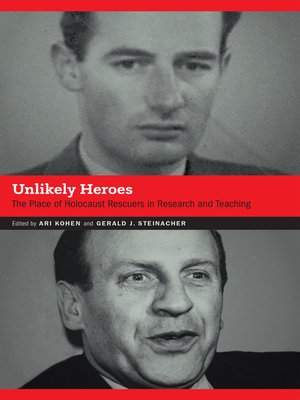Unlikely Heroes
ebook ∣ The Place of Holocaust Rescuers in Research and Teaching · Contemporary Holocaust Studies
By Ari Kohen

Sign up to save your library
With an OverDrive account, you can save your favorite libraries for at-a-glance information about availability. Find out more about OverDrive accounts.
Find this title in Libby, the library reading app by OverDrive.



Search for a digital library with this title
Title found at these libraries:
| Library Name | Distance |
|---|---|
| Loading... |
Classes and books on the Holocaust often center on the experiences of victims, perpetrators, and bystanders, but rescuers also occupy a prominent space in Holocaust courses and literature even though incidents of rescue were relatively few and rescuers constituted less than 1 percent of the population in Nazi-occupied Europe. As inspiring figures and role models, rescuers challenge us to consider how we would act if we found ourselves in similarly perilous situations of grave moral import. Their stories speak to us and move us.
Yet this was not always the case. Seventy years ago these brave men and women, today regarded as the Righteous Among the Nations, went largely unrecognized; indeed, sometimes they were even singled out for abuse from their co-nationals for their selfless actions. Unlikely Heroes traces the evolution of the humanitarian hero, looking at the ways in which historians, politicians, and filmmakers have treated individual rescuers like Raoul Wallenberg and Oskar Schindler, as well as the rescue efforts of humanitarian organizations. Contributors in this edited collection also explore classroom possibilities for dealing with the role of rescuers, at both the university and the secondary level.
Yet this was not always the case. Seventy years ago these brave men and women, today regarded as the Righteous Among the Nations, went largely unrecognized; indeed, sometimes they were even singled out for abuse from their co-nationals for their selfless actions. Unlikely Heroes traces the evolution of the humanitarian hero, looking at the ways in which historians, politicians, and filmmakers have treated individual rescuers like Raoul Wallenberg and Oskar Schindler, as well as the rescue efforts of humanitarian organizations. Contributors in this edited collection also explore classroom possibilities for dealing with the role of rescuers, at both the university and the secondary level.







